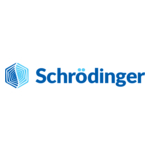 BUSINESS WIRE
BUSINESS WIRE

– Additional funding received from the Bill & Melinda Gates Foundation to further accelerate initiative –
Schrödinger Broadens and Accelerates Predictive Toxicology Initiative
Jaren Madden (Investors)
Schrödinger, Inc.
jaren.madden@schrodinger.com
617-286-6264
Matthew Luchini (Investors)
Schrödinger, Inc.
matthew.luchini@schrodinger.com
917-719-0636
Allie Nicodemo (Media)
Schrödinger, Inc.
allie.nicodemo@schrodinger.com
617-356-2325
Schrödinger, Inc. (Nasdaq: SDGR), today announced that it is broadening and accelerating its initiative to expand the company’s computational platform to predict toxicology risk early in drug discovery. The goal of the initiative, announced earlier this year, is to develop a computational solution designed to improve the properties of novel drug development candidates and reduce the risk of development failure associated with binding to off-target proteins, which can be associated with serious side effects.
In conjunction with this expansion, Schrödinger received an additional $9.5 million from the Bill & Melinda Gates Foundation, which follows the initial $10 million grant from the Gates Foundation in July 2024. The additional funding enables Schrödinger to more rapidly access relevant experimental structures and extends the funding for this initiative to April 2026. Once developed, the technology will be available to the Gates Foundation’s grantees around the world to help speed the development of new drugs against diseases that disproportionately affect people in low- and middle-income countries. These tools will also be available to Schrödinger’s software customers and will be used to advance Schrödinger’s proprietary drug discovery programs and collaborations.
“This additional funding allows us to accelerate and broaden the scope of our initiative to rapidly develop high-quality computational models to address off-target toxicity, a significant cause of drug development failure,” stated Ramy Farid, Ph.D., chief executive officer at Schrödinger. “We are grateful to the Gates Foundation for their continued support and shared vision of using computation to reduce the potential for safety issues in preclinical and clinical research and significantly lower the cost and risk of drug development.”
Schrödinger has already generated several computational predictive models of off-target drug activity. The company’s recent advances characterizing the structure of safety-related proteins such as hERG (recently published in Cell) and cytochrome P450 enzymes are examples of these efforts.
The majority of revenue associated with the additional funding is expected to be recognized in 2025.
About Schrödinger
Schrödinger is transforming molecular discovery with its computational platform, which enables the discovery of novel, highly optimized molecules for drug development and materials design. Schrödinger’s software platform is built on more than 30 years of R&D investment and is licensed by biotechnology, pharmaceutical and industrial companies, and academic institutions around the world. Schrödinger also leverages the platform to advance a portfolio of collaborative and proprietary programs and is advancing three clinical-stage oncology programs. Founded in 1990, Schrödinger has approximately 900 employees operating from 15 locations globally. To learn more, visit www.schrodinger.com, follow us on LinkedIn and Instagram, or visit our blog, Extrapolations.com.
Cautionary Note Regarding Forward-Looking Statements
This press release contains forward-looking statements within the meaning of The Private Securities Litigation Reform Act of 1995 including, but not limited to those statements regarding Schrödinger’s expectations about the speed and capacity of its computational platform, the long-term potential of its business, its ability to improve and advance the science underlying its platform, including the ability to predict off-target activity, its ability to improve drug discovery and the timing during which the initiative’s technology will become available to software customers and collaborators, its expectations related to the recognition of revenue from the initiative, as well as expectations related to the use of its cash, cash equivalents and marketable securities. Statements including words such as “aim,” “anticipate,” “believe,” “contemplate,” “continue,” “could,” “estimate,” “expect,” “goal,” “intend,” “may,” “might,” “plan,” “potential,” “predict,” “project,” “should,” “target,” “will,” “would” and statements in the future tense are forward-looking statements. These forward-looking statements reflect Schrödinger’s current views about its plans, intentions, expectations, strategies and prospects, which are based on the information currently available to the company and on assumptions the company has made. Actual results may differ materially from those described in these forward-looking statements and are subject to a variety of assumptions, uncertainties, risks and important factors that are beyond Schrödinger’s control, including the demand for its software platform, its ability to further develop its computational platform, its reliance upon third-party providers of cloud-based infrastructure to host its software solutions, factors adversely affecting the life sciences industry, its reliance upon its third-party drug discovery collaborators, the uncertainties inherent in drug development and commercialization, such as the conduct of research activities and the timing of and its ability to initiate and complete preclinical studies and clinical trials, whether results from preclinical studies will be predictive of the results of later preclinical studies and clinical trials, uncertainties associated with the regulatory review of IND submissions, clinical trials and applications for marketing approvals, the ability to retain and hire key personnel and other risks detailed under the caption “Risk Factors” and elsewhere in the company’s Securities and Exchange Commission filings and reports, including its Quarterly Report on Form 10-Q for the quarter ended September 30, 2024, filed with the Securities and Exchange Commission on November 12, 2024, as well as future filings and reports by the company. Any forward-looking statements contained in this press release speak only as of the date hereof. Except as required by law, Schrödinger undertakes no duty or obligation to update any forward-looking statements contained in this press release as a result of new information, future events, changes in expectations or otherwise.
View source version on businesswire.com: https://www.businesswire.com/news/home/20241118396407/en/


